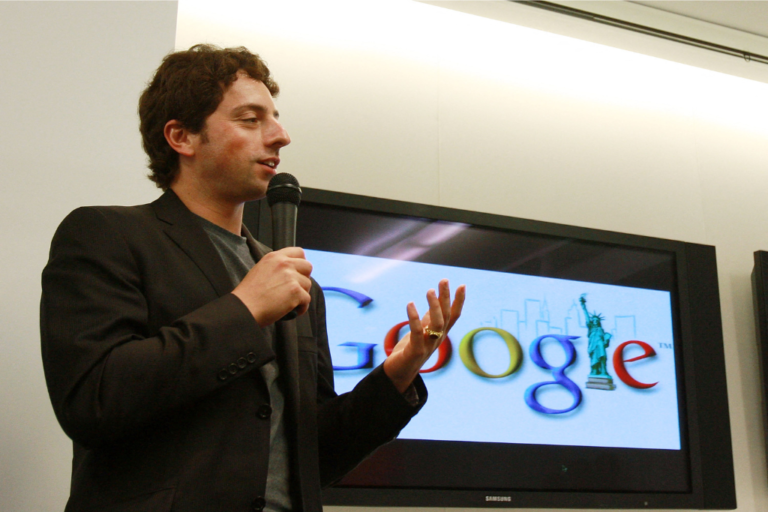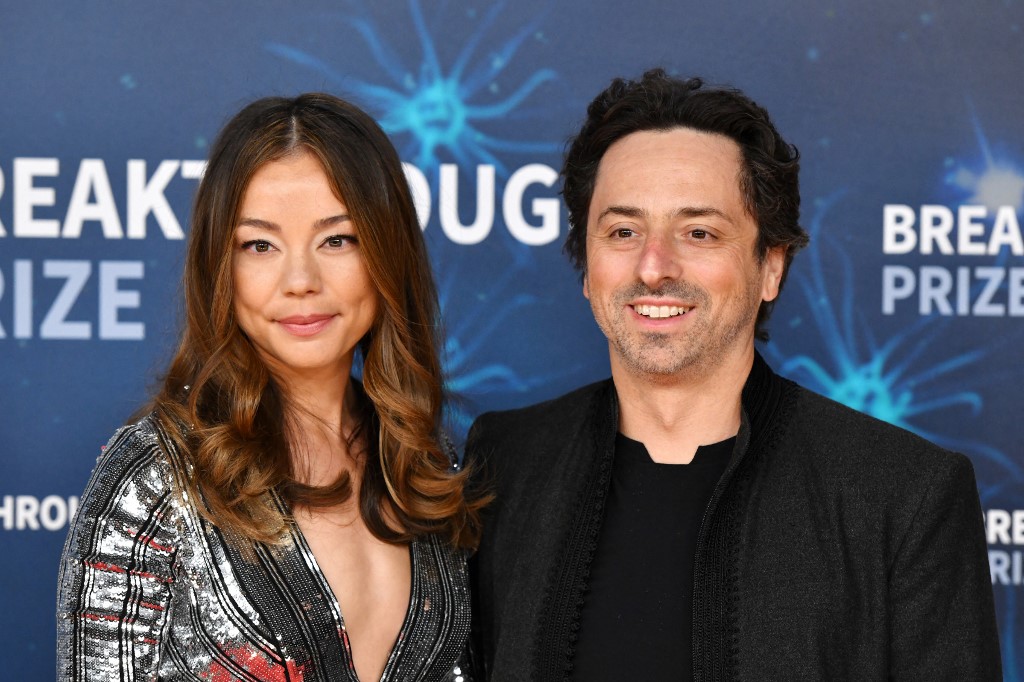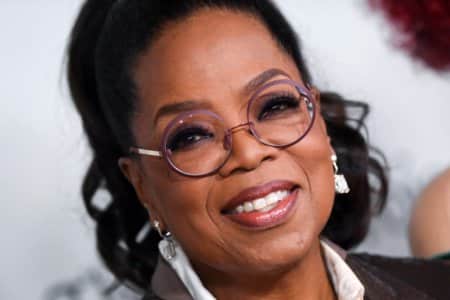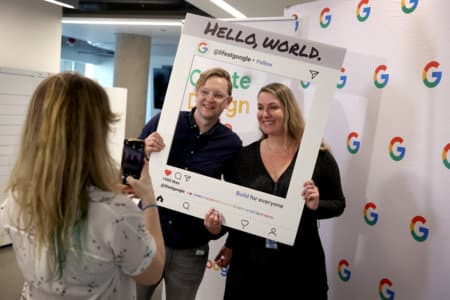
Who is Sergey Brin? He is famous for being the computer scientist who created Google with Larry Page.
As the current co-founder and board member — the parent company of Google — Forbes reports that Brin’s net worth is US$111.8 billion.
Starting Google was just the beginning of Brin’s growing wealth.
In 2006, Google purchased YouTube, a highly popular video streaming website, for US$1.65 billion in stock.
In 2015, the Google duo restructured, creating the parent company Alphabet. Brin became its president while Page served as CEO.
He also owns small stakes in electric car maker Tesla and 23andMe, a genome-mapping company helmed by his ex-wife, Anne Wojcicki.
Today, Brin places seventh in the Forbes 400 (2023) list and ranks 14th in the 2023 wealthiest people in the world lineup.
Having achieved such impressive milestones and being in the limelight since Google, he has numerous inspirational quotes and food for thought attributed to him.
Here are a few to contemplate:
- “We want Google to be the third half of your brain.”
- “Solving big problems is easier than solving little problems.”
- “Obviously, everyone wants to be successful, but I want to be looked back on as being very innovative, very trusted and ethical and ultimately making a big difference in the world”.
- “You always hear the phrase, money doesn’t buy you happiness. But I always, in the back of my mind, figured a lot of money will buy you a little bit of happiness. But it’s not really true. I got a new car because the old one’s lease expired.”
- “When it’s too easy to get money, then you get a lot of noise mixed in with the real innovation and entrepreneurship. Tough times bring out the best parts of Silicon Valley.”
- “We have tried to define precisely what it means to be a force for good – always do the right, ethical thing. Ultimately, ‘Don’t be evil’ seems the easiest way to summarise it.”
While we know of his current success, how much do we really know about the man behind the world’s most popular search engine and media giant?

Sergey Brin was the president of Google’s parent company, Alphabet Inc., until stepping down from the role on December 3, 2019. Source: AFP
Sergey Brin: Where did he study?
Born on August 21, 1973, in Moscow, Russia, Brin’s family moved to the US in 1979 because of the anti-semitism they faced.
At just six years old, his family immigrated to Adelphi, Maryland, where he spent most of his childhood.
Like Page, he attended Montessori school as a child and then graduated from Eleanor Roosevelt High School.
His father, a mathematics professor at the University of Maryland, possibly influenced Brin in his next phase of life.
Having a natural talent for numbers, Brin pursued a degree in mathematics and computer science from the University of Maryland at College Park.
Studying this field in the 90s differs significantly from what is covered today because technology has evolved in leaps and bounds.
When computer science became an independent discipline in the early 1960s, by the 1990s, big developments were blooming.
Babak Rosenthal Mohammadi, accredited general manager of Toyota Motor Sales U.S.A., outlines how this degree has changed since then.
The Oregon State University (OSU) computer science graduate says that back in the day, “courses primarily centred around programming languages like C, Pascal, and assembly, emphasising understanding algorithms and data structures.”
At this time was the birth of the internet and the World Wide Web, so programmes were focused on incorporating “web development, HTML, and JavaScript courses, preparing students to contribute to the burgeoning world of online communication and e-commerce.”
This is the kind of education that Brin would have experienced, and he graduated with a Bachelor of Science degree with honours in mathematics and computer science.
Since then, there has been the meteoric rise of artificial intelligence and machine learning, the growth of data science and big data analytics, the recognition of the importance of cybersecurity and network security, and the advent of cloud computing and distributed systems.
Brin has made it into the University of Maryland at College Park’s Alumni Hall of Fame. While his education played a large role in his current success, the programmes for this field have evolved a great deal.

Sergey Brin joined the University of Maryland, graduating with top honours in maths and computer science in just three years. He then pursued graduate studies at Stanford University with a National Science Foundation fellowship. Source: AFP
Today, the University of Maryland’s College of Computer, Mathematical, and Natural Sciences boasts 7,400 undergraduates in 30 majors and 1,600 graduate students in 23 programmes.
Highlight research areas in the Department of Computer Science include:
- AI & Robotics
- Bioinformatics and Computational Biology
- Human-Computer Interaction
- Information Retrieval and Geographic Information Systems (GIS)
- Machine Learning and Data Science
- Quantum Computing
Groundbreaking discoveries are made in the department, like a “Nose on a Chip“ device that could technologically replicate a sense of smell.
For Brin, studying computer science spurned an incredible and exciting future.
However, he is not the only famous and successful person to take up a degree in computer science:
- Mark Zuckerberg majored in computer science and psychology at Harvard.
- James Gosling, the father of Java, earned his bachelor’s degree in computer science at the University of Calgary before his PhD at Carnegie Mellon University in the US.
- Reed Hastings, CEO of Netflix, has a master’s degree in computer science from Stanford University
- Jimmy Fallon, the star of the popular comedy show “Saturday Night Live” and his own show “Late Night with Jimmy Fallon” attended The College of Saint Rose in New York for a computer science degree major.
- Anita Borg, the founding director of the Institute for Women and Technology (IWT) and the Grace Hopper Celebration of Women in Computing, and creator of the Systers mailing list, has a PhD in computer science from New York University (NYU).
- Actor Liam Neeson started a computer science and physics degree at Queen’s University Belfast but sadly dropped out. (Sometimes, you don’t need a degree to succeed).
After earning his undergraduate degree, Brin earned a master’s degree in computer science at Stanford with a graduate fellowship from the National Science Foundation.
It is here where he met Page, pursuing the same master’s.

Larry Page and Sergey Brin founded Google in 1996 on the back of an algorithm, turning it into one of the most valuable companies in the world. Source: AFP
Googol to Google: How did Google come to be?
The story of how Google started is an inspiring narrative that continues to shape the digital landscape.
After founders Sergey Brin and Larry Page met at Stanford University in 1995, they both realised they had a common interest in the idea of extracting meaning from the mass of data accumulating on the Internet.
With this shared interest, the pair began working in Page’s dormitory to create a new type of search technology. This technology, which they called BackRub, leveraged web users’ own ranking abilities by tracking a website’s backing links.
The name “BackRub” was coined from the algorithm’s ranking that calculated how many “back-links” a web page includes. It would later evolve into Google’s PageRank algorithm.
Google officially began its journey in 1998 when Brin and Page incorporated the company, and their dedication to creating a better search engine quickly caught the attention of investors.
They secured external funding and raised US$1 million under the company’s new name, Google.
The name derives from a misspelling of Page’s original planned name, “Googol,” a mathematical term for the number one followed by 100 zeroes.
In mid-1999, Google attracted additional funding with a US$25 million injection of venture capital. At this stage, the company was processing 500,000 search queries each day.

Since its founding in 1998, the company has grown massively and now handles over 70% of worldwide online search requests. Source: AFP
Brin’s and Page’s commitment to providing users with high-quality, relevant search results was the foundation on which Google was built.
As the company’s president of technology, Brin played a pivotal role in developing Google’s search algorithms and expanding its product portfolio.
His influence extended to Google’s culture, emphasising innovation, collaboration, and a commitment to solving complex problems.
Under Brin’s leadership, Google expanded into various domains, including Google Maps, Google Glass, and Google X, its moonshot laboratory.
Brin also championed Google’s approach to employee innovation, allowing his engineers to spend 20% of their time on personal projects, which led to creating products like Gmail.
In 2011, Brin co-founded Google X (now X Development), a semi-secret research facility that birthed innovations like Google Glass and self-driving cars, highlighting his commitment to innovation.
Brin has also made podcast appearances at the Charlie Rose Show, Fireside Chat at TED Conference and more — where he has offered valuable insights into his entrepreneurial journey.
One key lesson from his podcasts is the significance of pursuing ambitious, world-changing projects. He advocated for making the best use of technology to solve complex problems in healthcare, transportation, or energy.

(L-R) Nicole Shanahan and Sergey Brin. Shanahan is an academic fellow of CodeX, the Stanford Centre for Legal Informatics. Source: AFP
Sergey Brin: Education of the people around him
In 2015, Brin and Anne Wojcicki, his now ex-wife, parted ways. Wojcicki, an American entrepreneur, is renowned for her role as the co-founder and CEO of the personal genetics company 23andMe.
She earned a Bachelor of Science in Biology from Yale University in 1996. She later worked as a researcher and as an investment analyst.
In 2006, driven by her passion for the transformative potential of personal genetic testing in healthcare, Wojcicki teamed up with American biologist Linda Avey to establish 23andMe.
Brin was later married to Nicole Shanahan for three years before divorcing in 2022, She holds a Bachelor of Arts (Asian Studied, Economics and Mandarin Chinese) from University of Puget Sound in Tacoma, Washington and a Juris Doctor from Santa Clara University School of Law.

Pichai joined Google in 2004, climbed the ranks to become CEO in 2015, and took over Alphabet in 2019. He has restructured Google’s workforce, conducted layoffs, and prioritised AI during his tenure as CEO. Source: AFP
Google boasts a workforce of 139,995 employees. Notably, the most common highest degree among Google’s staff is a bachelor’s degree, with 67% of employees holding at least this level of education.
The most common major among Google employees is business, with 20% majoring in this discipline.
Sundar Pichai, Alphabet’s CEO, brings a wealth of academic achievement to his role. He holds a Master of Science degree from Stanford University in materials science and engineering and an MBA from the Wharton School of the University of Pennsylvania.
These educational backgrounds and the talent within Google’s workforce show the company’s capacity to forge ahead and sustain its tradition of innovation, even in the wake of the departure of its co-founders, Brin and Page.










